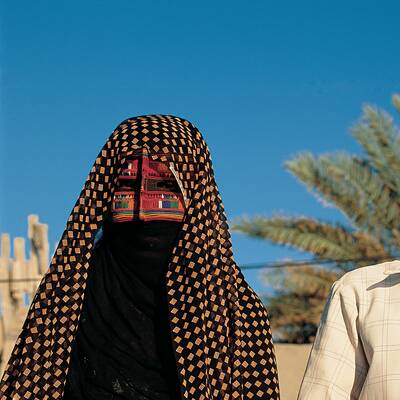
We know Ardabil province by its vast and picturesque plains, and as the region of hot water springs. After recognizing the special clothing of women in this region its beauty would be redoubled. The clothing is made of the nature and it, in turn, adds to the colors of the nature. we have to go to the cities such as Mughan, Germi, Jafar Abad, Bile Savar, Aslan Duz and regions like them to find the traces of the traditional clothing of Ardabil.
Here is a part of the settlement of Shahsevan ethnic group and it is for many years that the people in the city don’t use the local clothes. The clothes of women in the tribe consists of nine parts. According to the findings in the book of Delbafteha (the clothes woven by the heart), this clothing is sewed by bright colors and it is named Tuman Kevink. It includes: a drees named Kevink, a Shaliteh skirt named Tuman, a scarf named Yayliq with a kerchief over it named Alin Yayliq, Arkhchen that is a kind of beret, a sleeveless vest named Jelqa, along with socks and shoes (Bashmaq). The main point about the clothing of these women is its similarity with the clothes of Gilan people that seems to be normal because of their juxtaposition. Meanwhile, the similarity of the shape, form and pattern of Tonban (pants) of nomads in Ardabil with Gilan clothes are considerable. Also, the fluted hat that is worn by the nomadic men and called Kepi is mainly the same headwear of Gilak men. It is made of the skin of a newly born lamb. It also should be said that men in Ardabil nomads wear a plain suit, or a woolen coat, that is not so distinctive or unique. Decorations of the women’s dress and the form of men’s hat are mainly indicative of their social position and economic situation. For example, golden and silver coin embroidery are the main decorations of the feminine clothes.
The clothes are locally produced by the tribe and the pattern of the fabric is inspired by the surrounding nature. Sewing the traditional feminine clothes needs much more fabric than the current clothes in the city. The values of the tribe like the rule of covering the whole body from the head to the ankle are considered in the process of making these clothes. It also should be said that the tribe’s men wear Charooq.




